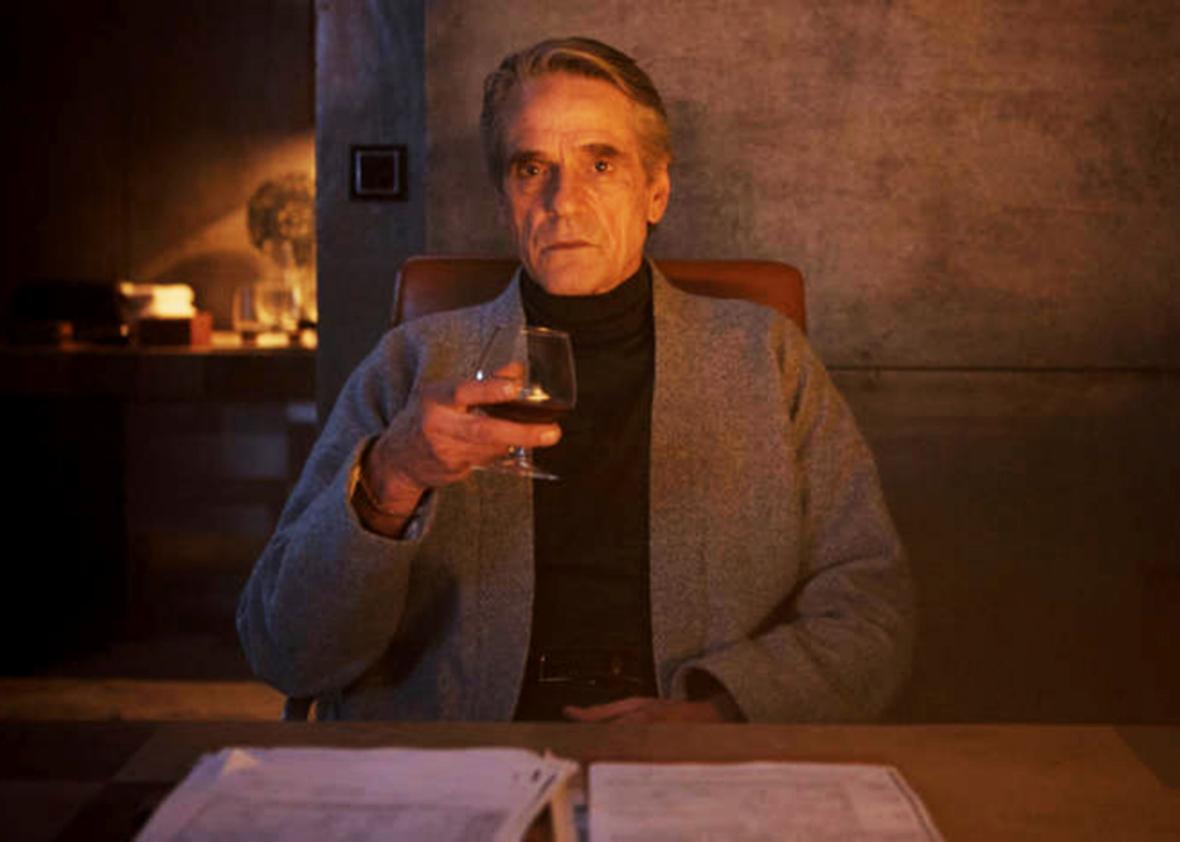Assassin’s Creed, the latest tentpole hoping to transform a mega-popular video game franchise into a mega-popular film one, isn’t trying to be a Dan Brown adaptation. But when it sketches a centuries-old rivalry between devious Knights Templar and a freedom-defending guild of assassins—when it surveys the paintings of the Spanish Renaissance, when it quotes Robert Oppenheimer’s favorite line from the Bhagavad Gita, when it tiptoes through the Spanish Inquisition and waning of days of the Moorish Conquest—it doesn’t mind if you mistake it for one. Still, there’s one scene in this curiously frigid action movie that ignited a different cultural ember in my mind, in this case a lyric from Leonard Bernstein’s musical Candide: What a day! What a day! For an auto-da-fe!
The moment, like all of Assassin’s Creed’s big action sequences, is a flashback to Spain in the 15th century, where three of the titular assassins are about to be burned at the stake. The setting—a public square, presided over by face-painted priests and royals and populated by a pious mob—is modeled after a Francisco Rizi painting but baked in the frenzied mold of Mad Max: Fury Road, with religious grotesques clamoring for the blood of heretics. A daring escape and a balletic fight gives way to a chase through a sprawling Spanish city, culminating in a free fall so thrilling I’d hesitate to spoil it, but there it is in the trailer.
Alas, Assassin’s Creed was directed not by Mad Max’s George Miller but by Justin Kurzel (2015’s Macbeth), whose palette consists of grim and grimmer in shades of sand-flecked and midnight. And despite those occasional halfhearted nods at erudition, what he has created, to no one’s shock, is largely a big blunt marketing vehicle. I suppose you could say the film made me slightly more likely to play one of the games, but only because I’d do just about anything before I saw this movie again.
Starring, for I hope an ungodly fee, is Michael Fassbender as Callum Lynch, a ponderous murderer who is awoken after his own faked execution in a mysterious facility in Madrid. (With its concrete walls, copious exercise equipment, and menacing vibe, it just might be the world’s worst Equinox.) There the laconic Callum enters the care of Dr. Sophia Rikkin (Fassbender’s Macbeth co-star Marion Cotillard, muted and underused), which really means being strapped into a giant robotic arm called the Animus in order to arouse in him the “genetic memory” of his ancestor, an assassin named Aguilar.
Aided by the Animus, Callum relives the efforts of Aguilar and his fellow assassins to protect the prince of Granada from the Knights Templar, for fear that the prince’s father will give up the apple of Eden, an orb whose use will mean the end of free will on Earth, and which also kind of looks like one of those scent diffusers you’d buy at Sharper Image. Aguilar will hop from horses onto cliff sides and backflip into rocketing carriages to accomplish this task, which is to say he will do a lot of things that might have been thrilling had I had my hand on the game-console controller but are mostly neither novel nor exciting enough to justify their perches as the film’s action centerpieces. It sure must be a blast for Callum, though, who (appropriately and deadeningly) spends large stretches of this video game movie hooked into a souped-up VR rig.
Yes, there’s some modern-day intrigue, too, involving Sophia’s industrialist father Alan Rikkin (Jeremy Irons, in need of better late-career gigs), who claims his facility is researching a genetic cure for violence but who also has a connection to the assassins’ and Templars’ ancient fight. Also in tow are a handful of other “patients,” like Michael K. Williams’ Moussa, a man whose meaning-freighted gobbledygook actually causes Callum to say, “What the fuck is going on?” There are some flaccid gestures toward contemporary concerns over obeisance and free will, as when an illuminati-like “elder” of the Knights Templar suggests that “people no longer care about civil liberties, just standards of living.” Sick burn, plutocrat!
All of this, on paper, is kind of bananas—and would have been better treated by a bananas movie. Instead, Assassin’s Creed is cold in the service of its plot and dutiful in the service of its action. It feels, in other words, like a movie that may check off plenty of gamers’ boxes. (For example, there’s something called the “Bleeding Effect” that is surely important to the gameplay and inspires a lengthy and useless explanation here.) Unfortunately, no one behind the camera bothered to locate much heart. The only other exception comes during a brief moment when Callum, beginning to lose it after a rough ride in the Animus, begins singing some Patsy Cline. “I’m crazy for trying, I’m crazy for crying,” Fassbender cackles, channeling a bit of the gonzo outsider frontman he portrayed in the wonderful 2014 film Frank. Crazy, unfortunately, is the one thing this movie could use.
